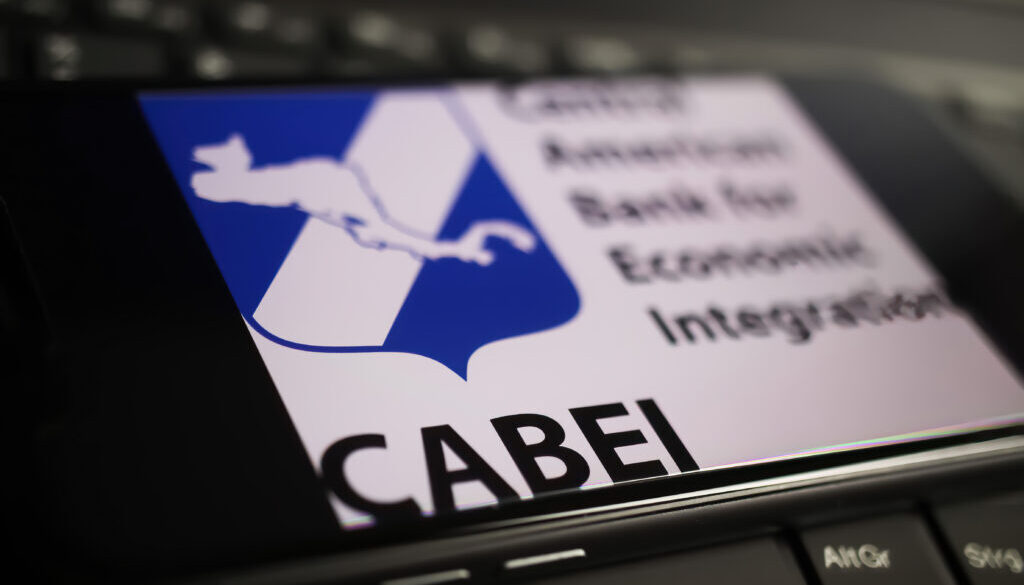In recent years the Central American Bank for Economic Integration has approved up to $4.6 billion in loans to El Salvador
Table of Contents
Contact the Central American Group to invest in El Salvador by locating a manufacturing facility in one of the CAG free zones.
The Central American Bank for Economic Integration (CABEI) is the multilateral organization that has approved loans to El Salvador for approximately $4.6 billion since 2019, as confirmed by the director of that institution in El Salvador, Luis Rodríguez.
Rodríguez, recently interviewed by the Salvadoran media, pointed out that this loan portfolio is quite broad. He also pointed out that it is equivalent to about 90% of the total loans that multilateral lenders have made to the current Bukele government since 2019.
In this sense, the country director explained that this amount, specifically $4.68 billion, includes investments in both the public and private sectors and non-sovereign public investment projects, which correspond to projects of autonomous entities. He pointed out, however, that most are public investment projects.
The Central American Bank for Economic Integration funds several Salvadoran government initiatives
Some loans that the Central American Bank for Economic Integration has authorized include funds for constructing the Los Chorros viaduct and the current administration’s “My New School” plan. Additionally, the bank has provided financing for some of the phases of the Territorial Control Plan and the remodeling of different sports facilities in El Salvador.
Despite the total figure that Rodríguez confirms has comprised the approved loans, the website of the Central American Bank for Economic Integration does not show all the interactions that El Salvador has had with the entity, which includes loans such as the $600 million that the agency approved in 2021 for the recovery of companies affected by the COVID pandemic.
Due to the preceding, it is impossible to detail the total funds that CABEI has already disbursed to the country since several of these loans have already been approved. The money, however, still needs to be delivered. For instance, this is the case of a loan of up to $245.8 million, which, according to information from CABEI, has been approved for the construction of the Los Chorros viaduct.
Another of the amounts that, according to the entity’s records, have not yet been disbursed are those corresponding to a $109 million loan for “the modernization of security institutions” within the framework of the Territorial Control Plan. This loan amount was approved by the multilateral agency in October 2019.
During the current government’s term, CABEI has been characterized precisely as being the entity with the most signed and approved loan contracts with the country. This has occurred in a context in which international financing sources remain closed to the country. The cause of this has been the low confidence of investors, the absence of an agreement with the International Monetary Fund (IMF), and some of the Bukele administration’s policies that have led to an elevated level of country risk.
The Central American Bank for Economic Integration (CABEI), the Banco Centroamericano de Integración Económica in Spanish, is a regional development bank promoting economic integration and development in Central America. It was established in 1960 and is headquartered in Tegucigalpa, Honduras.
Promoting economic and social development
CABEI’s primary objective is to contribute to its member countries’ economic and social development, including Belize, Costa Rica, El Salvador, Guatemala, Honduras, Nicaragua, and Panama. It provides financial resources, technical assistance, and support for projects in various sectors such as infrastructure, energy, agriculture, industry, and social development.
The bank aims to foster regional integration by financing projects that promote trade, investment, and economic cooperation among its member countries. It also works closely with other regional and international organizations to leverage resources and encourage development in Central America.
CABEI operates through various financial instruments, including loans, grants, guarantees, and technical assistance. It raises funds through capital subscriptions from its member countries, borrowing in international financial markets, and partnerships with other development institutions.
The Central American Bank for Economic Integration is crucial in promoting sustainable development and regional integration in Central America by providing financial resources and technical expertise to support projects that contribute to economic growth, poverty reduction, and social progress in the region. Furthermore, CABEI has actively collaborated with other international organizations, including the Inter-American Development Bank (IDB), the World Bank, and regional integration initiatives such as the Central American Integration System (SICA). This collaboration has strengthened the bank’s ability to mobilize resources, coordinate efforts, and promote regional integration.
Regional challenges remain
While CABEI has achieved significant success in promoting economic development and integration in Central America, it is essential to note that the region still faces various challenges. CABEI continues to work towards addressing the region’s issues by providing financial support, promoting sustainable practices, and fostering regional cooperation.
Overall, the Central American Bank for Economic Integration has played a crucial role in supporting economic development and regional integration in Central America, positively impacting the region’s progress.
Contact Us
Please use this form to contact us and we will respond as soon as possible:





